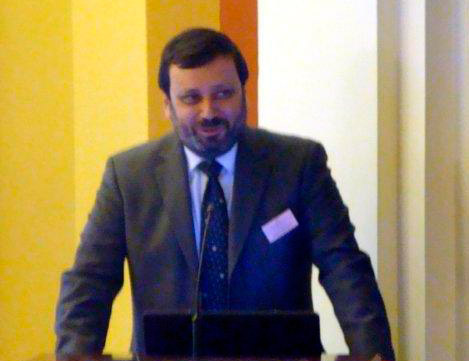
Nikitas Nikitakos
Professor, Dept of Shipping, Trade & Transport, Head of the Laboratory for ‘Νew Technologies in Shipping, Transport & Islands Development’, University of the Aegean, Chios
Prof. N. Nikitakos is a graduate of Hellenic Naval Academy (1980) and holds a B.Sc. in Economics (University of Piraeus 1986) and 2 M.Sc. from Naval Postgraduate School, Monterey, CA, USA (M.Sc. Electrical .Engineering. and M.Sc. in Appl. Mathematics ). He spent 25 years as Naval Officer (Captain H.N. ret.) when he participated in several NATO and EU committees He received a Ph.D. in Electrical and Computer Engineering from National Technical University of Athens (1996). He is Professor of Shipping Informatics and Communications and was Head of the Dept. of Shipping Trade and Transport in the University of the Aegean (2005-2009). He is Technical Advisor of Hellenic Chamber of Shipping representing the organization in IMO’s COMSAR and NAV Subcommittees. He is member of IMO’s groups on e-navigation and GMDSS modernization He has participated mainly as coordinator/principal researcher in several European and defense related research projects. He was AMMITEC’s (Association of Maritime Managers Information Technology Electronics and Communication) president from 2006-2010 and currently President of Aegean Institute of the Law of the Sea and Maritime law in Rhodes. He holds 3 international patents on environment and renewable energies at sea and he was awarded from Lloyd’s List on Maritime Technological Innovation in 2006 and from EU-DGRegion for his work on isolated islands. He has published 5 books and many articles in international referred journals and conferences. He is Adjunct Professor at Shanghai Maritime University, Hangzhou Dianzi University – China and ΑΜΕΤ – India. He holds a ISPS, PMP and PMI-RPM certifications.
Title: Zero Emissions Ports
Ports are a key element to the supply chain and the green logistics are of primary interest. The concept of zero emissions’ port is referred to a port powered mainly from renewable energies in order to fulfill its power requirements and to reduce the air emissions mainly using this concept for the emerging cold ironing regulation. Several renewable energies and their application to port operation are discussed. The concept of smart grid is used in order to facilitate the use of several renewable energies and to monitor and control all the demand and distribution.
